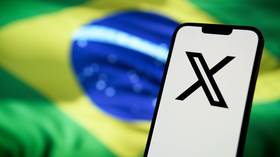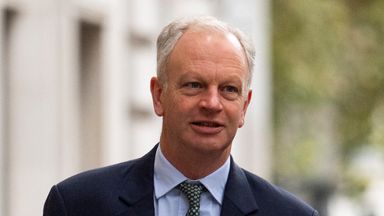 FILE PHOTO. © Getty Images / Jaap Arriens; NurPhoto
FILE PHOTO. © Getty Images / Jaap Arriens; NurPhoto
Social media platform X says it is moving to comply with demands issued by Brazil’s Supreme Court in the hope of reversing a nationwide ban ordered by the country’s top judge last month.
For nearly three weeks, X has been inaccessible to Brazilian users. Using a VPN to access the site carries the threat of a fine of almost $9,000. That’s after Justice Alexandre de Moraes banned the platform for failing to censor accounts that “spread disinformation.”
The platform's owner Elon Musk, a vocal advocate of free speech, has until now refused to back down, describing the orders as an attempt to censor voices on his platform and calling the justice “an evil dictator cosplaying as a judge.”
However, on Friday, X’s legal representatives announced that the platform has taken steps to comply with the Brazilian court’s demands to help resolve the impasse and get the ban on the site lifted.
These steps include paying the fines X owes, blocking the accounts that de Moraes had previously accused of propagating misinformation and of undermining Brazilian democracy, and naming a legal representative in the country.
Under Brazilian law foreign companies are required to have a representative who would assume all of the firm’s local legal responsibilities. X had such a representative until mid-August when it decided to close its offices and fire all its staff in the country. That was after Musk claimed that de Moraes threatened to arrest the company’s legal representative if X did not adhere to court orders.
On Saturday, Brazil’s Supreme Court confirmed X’s moves and gave the company five days to file all the necessary paperwork validating its new legal representative. It also reiterated its orders to block the accounts that had previously been named by a probe into hate speech and misinformation, and to pay fines totalling over $3 million. It’s unclear which accounts have been targeted, as the probe is confidential.
The dispute between Musk and the Brazilian authorities began in April when de Moraes ordered X to delete the accounts of several supporters of former President Jair Bolsonaro, calling them “digital militants” who spread “disinformation” about himself and the court. Musk refused, saying this would violate Brazilian laws.
Disclaimer: The copyright of this article belongs to the original author. Reposting this article is solely for the purpose of information dissemination and does not constitute any investment advice. If there is any infringement, please contact us immediately. We will make corrections or deletions as necessary. Thank you.



